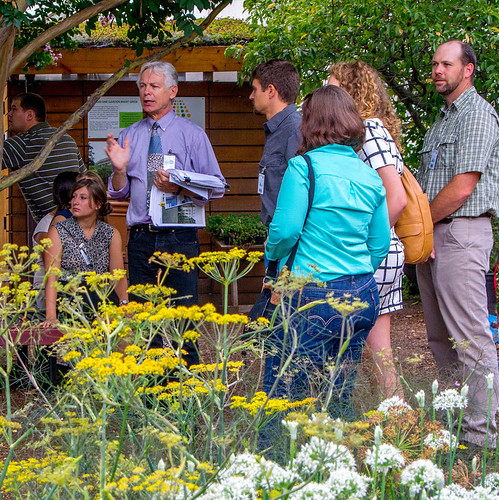
Agriculture Secretary Tom Vilsack hosted the world’s eight best soil judges last week after they earned the top spots at the 1st International Soil Judging Contest in Jeju, South Korea, in June. The Natural Resources Conservation Service Soil Science Division was actively involved in organizing the event and mentoring the winners. The first and second place teams, both from the U.S., along with their coaches, participated in a roundtable discussion with Secretary Vilsack and NRCS Chief Jason Weller to talk about soil judging, the importance of soil health, and careers in soil science. In addition, NRCS’ Landscape Architect, Bob Snieckus, led the students and coaches on a tour of USDA’s green projects, including the rooftop garden and The People’s Garden.
It was the first international soil judging contest, but soil judging in the United States dates back to at least 1960. The events involve the description, classification and interpretation of soil, with the main purpose of helping students recognize important soil and landscape properties and to consider these characteristics when deciding how to use soils. A contest involves “judgers,” or students interested in soil science, entering a soil pit to examine the profile. The judgers then determine where the different horizons are and describe each one, looking at factors such as soil type, color, depth, consistency, shape, structure and other features. The soil is classified, and site and soil interpretations are performed.
NRCS’ National Leader for Soil Interpretations Maxine Levin accompanied the students to Korea and was instrumental in organizing the inaugural competition. She said the impact of the international contest is monumental.

“It has prompted a permanent change in the curriculum for soil science across the globe,” she said. “Soil judging is an important part of understanding soil, and it’s critical for students to have this hands-on experience in the field, as well as in the lab.”
During a ceremony for the soil judging champs, NRCS Associate Chief Leonard Jordan presented the students and coaches with certificates of appreciation signed by Secretary Vilsack. He thanked them for their contributions to furthering the study of soil science.

